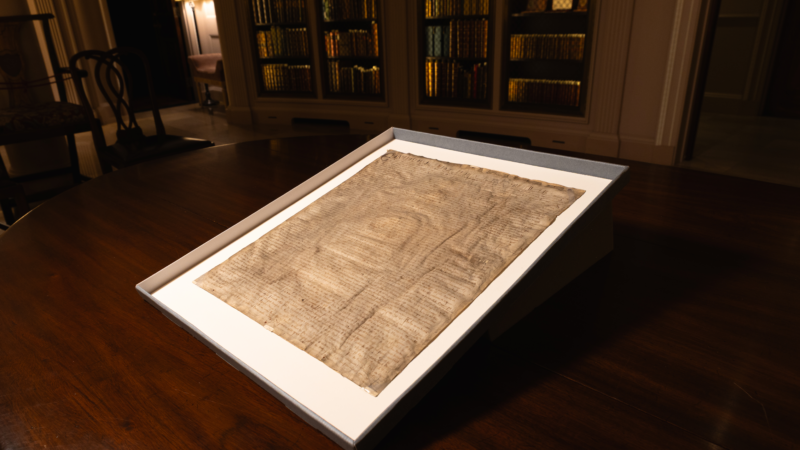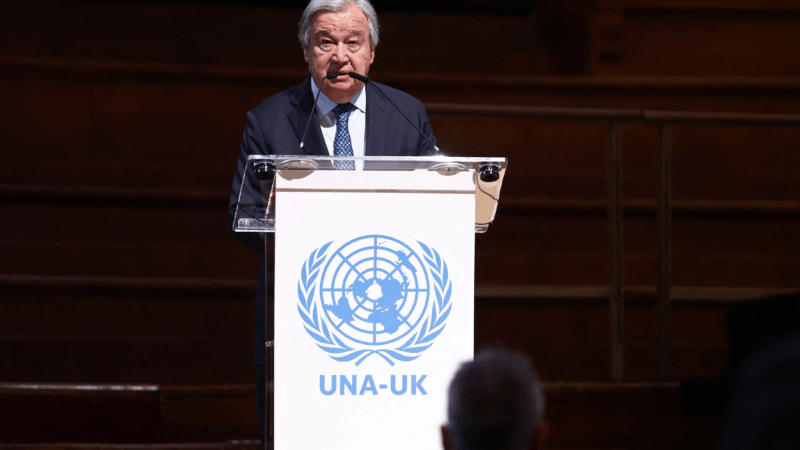Opinion: A wealth of wisdom for a bargain price
There’s a new reason to go through that pile of papers you’ve plunked somewhere.
Tests have established that a supposedly “unofficial” copy of the Magna Carta resting in the files of the Harvard Law School library for decades is an original, and, “one of the world’s most valuable documents.”
The law school reportedly paid just $27.50 for it in 1946.
David Carpenter, a professor at King’s College London, came upon the document in the Harvard Law School library’s online collection, and told The Guardian newspaper that he mused to himself, “My god this looks for all the world like an original…” Prof. Carpenter and Nicholas Vincent, at the University of East Anglia, used spectral imaging, ultraviolet light, and other tests, to determine that this Magna Carta rediscovered at Harvard is indeed the real thing.
The Magna Carta was first issued by King John of England in 1215 and declared that all people, royalty and commoners, had personal rights. Even kings had to abide by laws. It was reissued by his successors until Edward I in the year 1300. Professors Carpenter and Vincent date the Harvard Magna Carta to that final iteration.
The BBC says just 24 of the 200 original documents survive today. One of them, from the year 1297, is on display at the National Archives in Washington, DC, to remind us how the Americans who wrote the U.S. Constitution and Bill of Rights were inspired by the Magna Carta. It’s on loan from the philanthropist David M. Rubenstein, who purchased it for $22 million dollars and called it, the “best money I ever spent.”
You may wonder if he’s asked himself this week, “Wait—I could have gotten one for $27.50?”
It is inviting when old papers or paintings are discovered in an attic or file to think first of their monetary value. But this week, with so many court cases about executive authority and the rights of individuals, it might be worthwhile to pause and read some of the words that made the Magna Carta so momentous.
For example, Clause 39:
“No free man shall be seized or imprisoned, or stripped of his rights or possessions, or outlawed or exiled, or deprived of his standing in any way, nor will we proceed with force against him, or send others to do so, except by the lawful judgment of his equals or by the law of the land.”
The true wealth of the Magna Carta is in what it says.
United Nations leaders bemoan global turmoil as the General Assembly turns 80
On Saturday, the UNGA celebrated its 80th birthday in London. Speakers including U.N. Secretary-General António Guterres addressed global uncertainty during the second term of President Trump.
European leaders warn Trump’s Greenland tariffs threaten ‘dangerous downward spiral’
In a joint statement, leaders of eight countries said they stand in "full solidarity" with Denmark and Greenland. Denmark's Prime Minister Mette Frederiksen added: "Europe will not be blackmailed."
Syrian government announces a ceasefire with the Kurdish-led Syrian Democratic Forces
Syria's new leaders, since toppling Bashar Assad in December 2024, have struggled to assert their full authority over the war-torn country.
U.S. military troops on standby for possible deployment to Minnesota
The move comes after President Trump again threatened to invoke the Insurrection Act to control ongoing protests over the immigration enforcement surge in Minneapolis.
Martin Luther King Jr. had a dream … about health care
A doctor from Nigeria tells what Martin Luther King Jr. taught him about health, Justice and inequality.
Sunday Puzzle: It takes two
Ilyse Levine-Kanji of Westborough, Massachusetts plays the puzzle with Weekend Edition Puzzlemaster Will Shortz and host Ayesha Rascoe.








